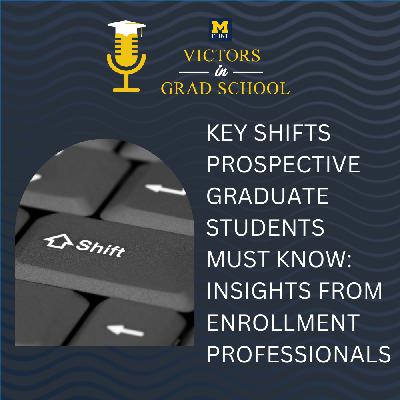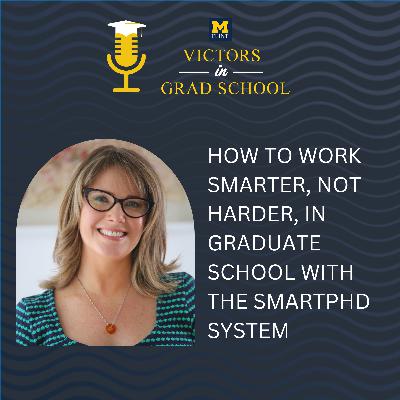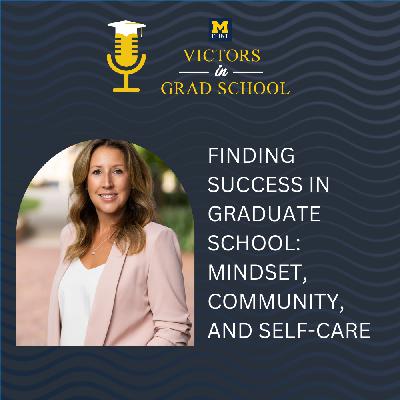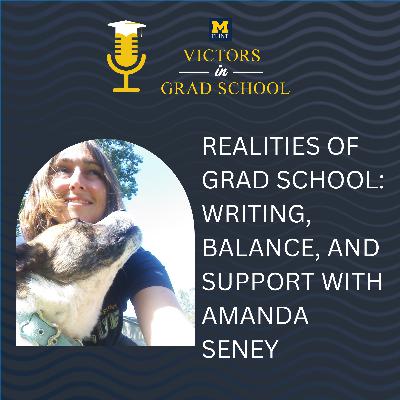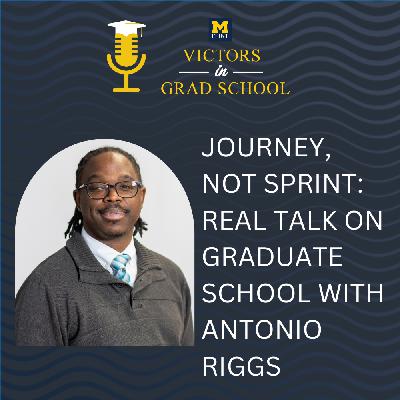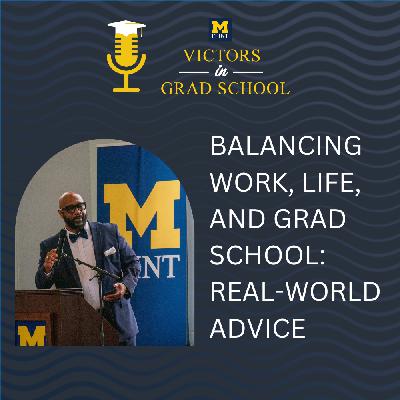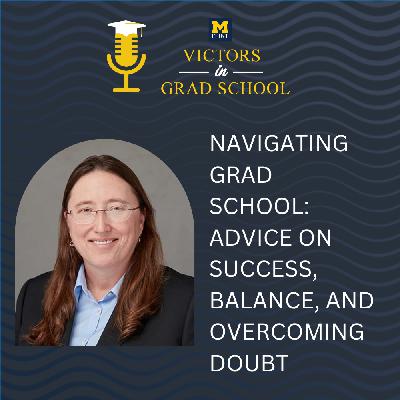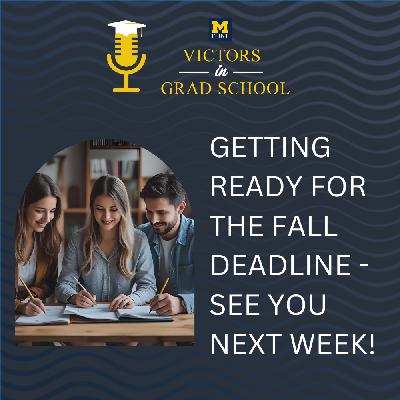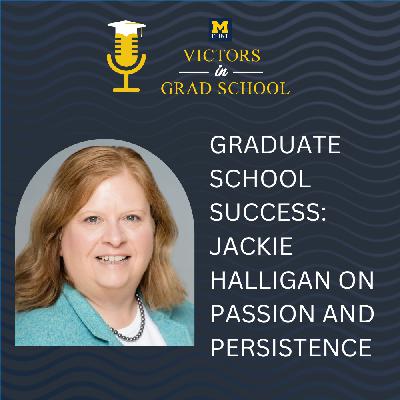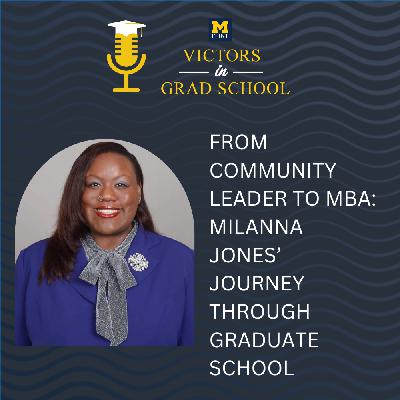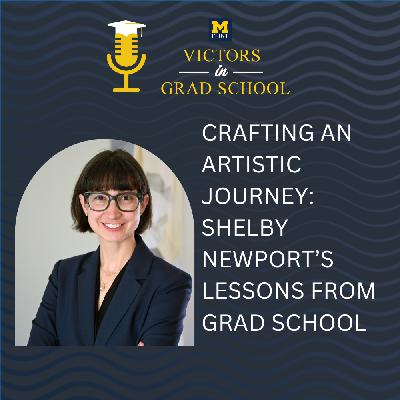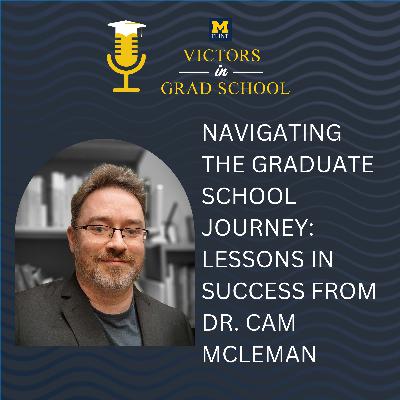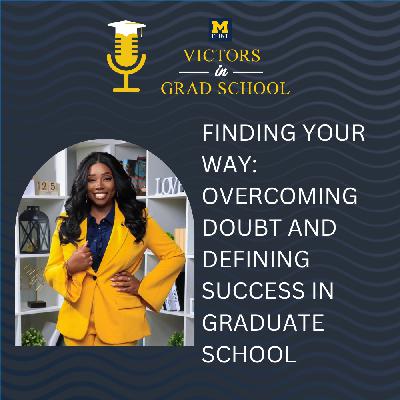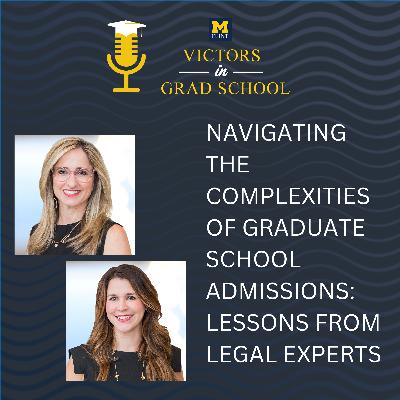Key Shifts Prospective Graduate Students Must Know: Insights from Enrollment Professionals
Description
Are you considering grad school in today’s ever-evolving landscape? This week’s episode of “Victors in Grad School” delivers a must-listen conversation directly from the heart of the National Association of Graduate Admission Professionals (NAGAP) conference. Host Dr. Christopher Lewis gathers real-time insights from experts, admissions leaders, and graduate support professionals about the most pressing shifts shaping the graduate school experience in 2024—and what they mean for your journey.
AI & Authenticity
One theme echoed by multiple guests is the rise of artificial intelligence, both in the application process and the workplace. While AI tools can help streamline your application, admissions teams stress the importance of letting your authentic self shine. Be cautious about relying too heavily on tools like ChatGPT—admissions counselors can usually spot AI-generated essays. Use technology as support, but make sure your personality and individual story come through.
Holistic Admissions & Diverse Backgrounds
The pandemic shifted perspectives around achievement. Rather than just seeking candidates with extensive internships or perfect test scores, many programs are now looking at the whole person. Did you juggle jobs with school? Are you a first-generation student? Your resilience, resourcefulness, and personal growth matter more than ever.
Funding, Fit & Flexibility
Cost is a growing concern, and our experts urge applicants to ask (and keep asking) about scholarships, assistantships, and other financial support. In addition, with the exponential growth of online and hybrid offerings, it’s crucial to understand various learning formats and select what truly fits your needs. There’s also more pressure than ever for grad programs to demonstrate real modern-world relevance—so do your homework and talk to admissions reps, not just online reviews or forums.
Evolving Skills for the Future
The episode also explores how the demands of the workforce are shifting. Communication and soft skills—especially in an AI-enhanced environment—are becoming more critical. Programs are adapting to prepare students not just for today’s job market, but for tomorrow’s unpredictable opportunities.
Why You Should Listen
If you’re serious about graduate school, don’t miss this episode. You’ll walk away with honest, actionable advice and a clearer sense of what it takes to stand out—and thrive—in today’s graduate landscape.
Ready to dive deeper? Listen now for practical tips and insider perspectives that could make all the difference in your grad school quest!
TRANSCRIPT
Dr. Christopher Lewis [00:00:01 ]:
Welcome to Victor's in grad school, where we have conversations with students, alumni, and experts about what it takes to find success in graduate school.
Dr. Christopher Lewis [00:00:11 ]:
Welcome back to Victor's in grad school. This week, we have a great opportunity to be able to learn from other enrollment management professionals. I recently attended the National Association of Graduate Admission Professionals or NAGAP. And at that conference, I spoke to a number of enrollment management professionals and individuals working within industry that are working with higher education about a number of questions to help you in the journey that you are on toward graduate school. This week's question is what's a shift you're seeing that today's prospective students should be aware of as they consider applying to graduate school. I hope that you enjoy the answers to this question and that it will help you on the journey that you are on.
Stacy Goldstein [00:01:03 ]:
Hi. This is Stacy Goldstein with UC San Diego at Rady School of Management with the master professional accountancy program. I work in our graduate department in admissions, thing is being your cheerleader for my students. Invest in yourself. It is competitive with jobs and AI is on the rise, so it can be challenging when applying for jobs or graduate school. When you're writing an admissions essay or doing your resume, please try not to rely on chat GBT that much. I know it's tempting, but I hate to break it to you, we can tell. We can definitely tell assert writing style or the dashes, but we wanna know you.
Stacy Goldstein [00:01:38 ]:
So really try to you can utilize the AI, that's fine, But put in a sense of who you are even through a piece of paper. We wanna get to know you. Be confident. Let that personality shine through and best of luck.
Donna Wang Su [00:01:54 ]:
My name is Donna Wang Su. I am the associate director for graduate admissions and financial aid at Northwestern University, Medill School of Journalism Media Integrated Marketing Communications. I think a shift that I am seeing as students are applying to grad school today, I think is that vulnerability. I think that COVID really changed things a bit in the sense of people are leaning a bit into not following. Here's that checklist. I'm gonna check everything off. And they're looking at other opportunities, and I think trying to find the lessons there, and that's something that I truly value. I think us in the admissions offices are also looking at things a little differently.
Donna Wang Su [00:02:33 ]:
We talk about there's that book Privileged Poor where we will consider, oh, this person doesn't have a lot of internships. But as I look at their resume, maybe they're a first generation college student and they don't have that financial luxury to take an unpaid internship in this field or industry. But I've seen that they've worked two, three different jobs while also going to school full time. What lessons have they picked up? What professional maturity have they picked up from this kind of time management? And so I think there's become more of a focus on that holistic admissions and holistic graduate student approach as well.
Santavaya Jordan [00:03:10 ]:
My name is Santavaya Jordan. I am the engineering graduate recruiter at Vanderbilt University, and I recruit only for our graduate programs in engineering. The biggest thing I see with students in particular is looking at what funding is available and if funding is even gonna be offered due to the political climate. And I can tell you that many of the schools they're fighting to find funding for students to encourage you to still be in these spaces. We definitely want you to be at our institutions to be able to thrive and not focus on how you're gonna pay for a school. So I know that has been a big concern that's happening. Also, another thing is even with testing, a lot of the students are worried about GRE scores or even, like, some that it may have GMAT scores, but a lot of schools are getting rid of that and a lot of them are taking holistic approach to look at other applicants, getting ready for testing because there is a lot of bias within looking at applicants. So I would definitely say although you may be studying for a GRE or studying for a GMAT, don't rule out all the other background things that you may have done with whether it's research or even maybe even had a paper published.
Santavaya Jordan [00:04:07 ]:
Those different type of things can really set you apart when applying for graduate school. So don't focus on your negatives that you may not have. Look at all the positive things and look at other ways to engage in your institution. If you don't have research experience, look at your institution and talk with different faculty and see if you can get in their lab. Pick up lab skills and learn new things that really help you advance your application.
Paul Brandano [00:04:31 ]:
I'm Paul Brandano. I'm the executive director of the Master of Science in Business Analytics at UCLA Anderson. So we're seeing a few shifts when we think about who our cohorts are. I would say first and foremost, it's a generational shift. When we think about Gen Z who's now a growing part of our population, I think the advantages they bring is that they care a lot about authenticity. They care a lot about making a difference in the world, being socially conscious. And I think these are all things that are going to be valuable in their careers. Of course, the political environment is always changing, so they've gotta be aware of that.
Paul Brandano [00:04:59 ]:
But I think that at the end of the day, they tend to have their head in the right place place when it comes to picking up the job of basically taking over the world eventually. I would also say that they tend to be because of the pandemic and because of the challenges they faced, either more resilient or less resilient. And I think that, you know, depending on their personal experience through that, we see it as either a strength or a gap. I think as long as the students are aware of that, that it's probably had an effect and are self aware enough to acknowledge it, it becomes an opportunity rather than a limitation.
Emily Dayton [00:05:31 ]:
Hi. This is Emily Dayton. I am the senior director of a specialized master's admissions and recruitment at the Rady School of Management at the University of California, San Diego. What I'm seeing is that with the growth of generative AI tools and AI assisted work environments, that what is becoming even more important is a focus on strong communication skills. I work with very quantitative and technical programs, and the shift that we're starting to do is that we're preparing our current graduate students for a work environment. We'll be more of a conductor of an AI tool that's doing most of the quantitative an

